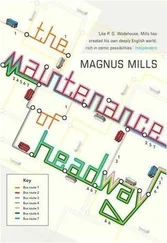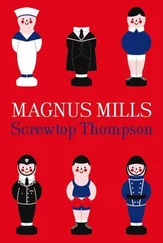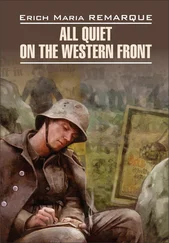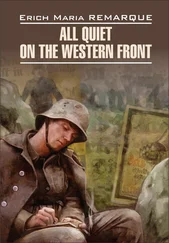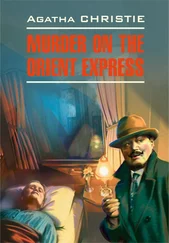Magnus Mills - All Quiet on the Orient Express
Здесь есть возможность читать онлайн «Magnus Mills - All Quiet on the Orient Express» весь текст электронной книги совершенно бесплатно (целиком полную версию без сокращений). В некоторых случаях можно слушать аудио, скачать через торрент в формате fb2 и присутствует краткое содержание. Год выпуска: 2004, Издательство: HarperPerennial, Жанр: Современная проза, на английском языке. Описание произведения, (предисловие) а так же отзывы посетителей доступны на портале библиотеки ЛибКат.
- Название:All Quiet on the Orient Express
- Автор:
- Издательство:HarperPerennial
- Жанр:
- Год:2004
- ISBN:нет данных
- Рейтинг книги:5 / 5. Голосов: 1
-
Избранное:Добавить в избранное
- Отзывы:
-
Ваша оценка:
- 100
- 1
- 2
- 3
- 4
- 5
All Quiet on the Orient Express: краткое содержание, описание и аннотация
Предлагаем к чтению аннотацию, описание, краткое содержание или предисловие (зависит от того, что написал сам автор книги «All Quiet on the Orient Express»). Если вы не нашли необходимую информацию о книге — напишите в комментариях, мы постараемся отыскать её.
All Quiet on the Orient Express — читать онлайн бесплатно полную книгу (весь текст) целиком
Ниже представлен текст книги, разбитый по страницам. Система сохранения места последней прочитанной страницы, позволяет с удобством читать онлайн бесплатно книгу «All Quiet on the Orient Express», без необходимости каждый раз заново искать на чём Вы остановились. Поставьте закладку, и сможете в любой момент перейти на страницу, на которой закончили чтение.
Интервал:
Закладка:
Then I heard his voice. “Where are you?”
“Over here,” I said quickly. “I think there’s a panel loose somewhere. I was just trying to find it.”
“Oh yes,” he said. “I heard it banging the other night. We ought to get it fixed soon.”
He climbed over the packing cases and joined me.
“Nice bikes,” I remarked.
He nodded. “Thought I’d hold on to them, see how the prices go.”
He was already examining the walls of the shed, searching for the loose panel. “Looks like we need a few new rivets along here.”
I pressed at random against a corrugated sheet and it moved outwards.
“Here we are,” I said. “The next one’s a bit loose too.”
“So it is,” said Mr Parker. Then he turned to me and asked, “Have you ever done any riveting?”
Six
Three days it took me to replace all the rivets in that shed. No sooner had Mr Parker seen the loose panels for himself than he decided this was the only suitable course of action.
“A chain is only as good as its weakest link,” he announced. “And the same goes for rivets.”
Accordingly he produced a riveting gun and showed me how to use it. I was also given a drill to remove the old rivets, and a ladder to get at them.
“Be careful when you’re up there, won’t you?” he said.
I had to admit that the view from the top of the shed was spectacular. I could see a good part of the lake, as well as a long section of the road from Millfold. It gave me an idea of how much Mr Parker could observe from the front window of his house. I never seemed to get invited past the kitchen, but even there I always had the feeling of being very high up. Here on top of the shed I was higher still, so I made the most of the scenery on offer. The weather wasn’t particularly pleasant though. The promise of sunshine after the rain had come to nothing, and the sky remained grey and cold. Clambering about on that ladder in the wind wasn’t easy and the pace of work was very slow. Nevertheless, by the time I got towards the end of the job I had become an accomplished riveter. Occasionally Mr Parker would appear at the bottom of the ladder and ask how I was getting on, but mostly he just left me to it. Which presumably meant he was quite satisfied with what I’d done.
As we sat at breakfast on the third morning he said, “Almost finished the shed have you?”
“Yes,” I replied. “Just about an hour’s work left to do.”
“Then you’ll be able to get on with the boats?”
“Yep.”
Outside a clinking noise could be heard approaching, and next thing Deakin’s pick-up truck pulled into the yard, fully laden with milk. He got out and bobbed up the steps, then ran over to the bothy before returning to the vehicle and driving off in a great hurry.
After he’d gone Mr Parker looked at me and said, “You could do that if you wanted.”
“Sorry,” I asked. “What?”
“The milk.”
“Oh, no,” I replied. “I don’t know a thing about cows.”
“Nor does Deakin.”
“Doesn’t he?”
“Course not.”
“But I thought he was a dairyman.”
“He collects it from the dairy, yes, but that’s all.”
“Oh,” I said. “I didn’t know that.”
“You’d only need a pick-up truck of your own and you could do it.”
“Well, I’d never even thought about it, really.”
“There’s a good bit of business to be had in that milk round.”
“Yes, but I wouldn’t want to put Deakin out of work.”
Mr Parker shook his head. “Nobody’s going to miss Deakin.”
At that moment the telephone rang in the adjoining room, instantly causing Gail to spring from her seat.
“I’ll get it,” she said, darting next door.
A moment later she was back.
“Dad, it’s for you.”
Mr Parker went through and picked up the receiver, while Gail sat down again opposite me.
“Homework alright, was it?” I asked.
“Yes, thanks,” she replied. “Do you want some more?”
“Breakfast or homework?”
“Homework.”
“Yes, I don’t mind doing it. What have you got?”
She reached into her bag under the table and produced a pile of exercise books.
“History, maths and comprehension.”
“Alright,” I said. “I’ll take care of it.”
Mr Parker came back into the kitchen. “That was Bryan Webb. He’s bringing his sheep through today.”
An hour later I’d finished the riveting and was just taking the ladder down when I heard them coming. There was a gateway leading from the top yard out onto the fell, beyond which I could hear someone shouting “Ho! Ho!” again and again. Within moments the leading ewes ventured through the open gate, followed soon afterwards by the whole flock. By this time Gail had gone to school and Mr Parker was away on some business or other, which left only me to direct the sheep through the yard and down the concrete road. Having never done anything like this before I wasn’t sure what to do, but I soon discovered that standing on one spot and waving my arms was the best approach. Eventually Bryan and another man appeared at the back of the nervous throng, accompanied by three efficient-looking dogs. The first thing I noticed about Bryan was that even when he was herding sheep he still wore his cardboard crown. As he passed by he took the time for a brief conversation.
“Getting on alright with that painting, are you?” he asked.
“Well I haven’t got started yet,” I replied. “Had to do some maintenance work on the shed first.”
The two men grinned at each other, and I now recognized the second one as a regular in the Packhorse.
“Well,” remarked Bryan. “You’ll have to get a move on if you’re going to get it done by Christmas.”
“Should be alright.”
“And how’s Tommy’s temper behaving itself?”
“Oh,” I said. “No trouble at all.”
“Really?”
“As long as I pay attention to what he says it’s a piece of cake.”
“That’s the secret, is it?”
“Seems to be.”
“Very good,” he said, grinning again. “Best to keep on the right side of him.”
Soon afterwards Bryan and I said goodbye, the other man nodded, and next thing they were on their way down the hill.
Now, at last, I could get on with the boats. I’d been going in and out of the big shed continually during the last couple of days, checking new rivets, removing old ones and so forth, but I hadn’t had cause to go in there this morning. Now I noticed for the first time that Mr Parker had stacked a number of paint tins just inside the door. To my dismay I discovered that they were all unlabelled, which meant the contents were green. This came as a bit of a disappointment because I’d been under the impression I was supposed to be painting the boats in their original colours. I knew he had lots of green paint, but I’d assumed that was for the workaday jobs: gates and doors and suchlike. Surely boats with classical prows deserved something slightly better. That’s what I’d have thought anyway. Nonetheless, there was plenty of preparation to do before I even opened a tin of paint, so I set my disappointment aside and got started with the electric sander.
It didn’t take long to come to the conclusion that whoever painted the boats in the first place had done a very thorough job. Maybe paint was of a better quality in those days, but this stuff almost seemed to be impregnated into the timber. Only by concentrating hard did I make any impression on it at all. Hour after hour I worked with that sander, head down, battling against layer upon layer of stubborn paint and making very slow progress. It was a noisy operation, and for this reason I failed to hear the arrival of a vehicle in the yard outside. Only when the shed door opened did I realize I had a visitor. It was Deakin.
Читать дальшеИнтервал:
Закладка:
Похожие книги на «All Quiet on the Orient Express»
Представляем Вашему вниманию похожие книги на «All Quiet on the Orient Express» списком для выбора. Мы отобрали схожую по названию и смыслу литературу в надежде предоставить читателям больше вариантов отыскать новые, интересные, ещё непрочитанные произведения.
Обсуждение, отзывы о книге «All Quiet on the Orient Express» и просто собственные мнения читателей. Оставьте ваши комментарии, напишите, что Вы думаете о произведении, его смысле или главных героях. Укажите что конкретно понравилось, а что нет, и почему Вы так считаете.

